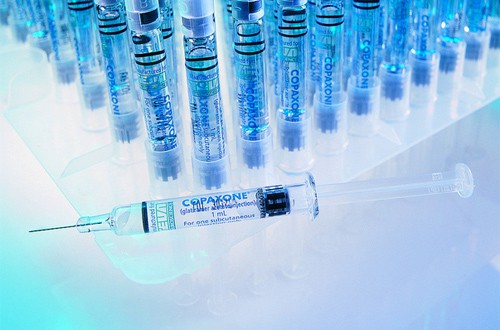
Teva suffered a defeat yesterday in a US court in its attempts to defend flagship multiple sclerosis drug Copaxone from generic competition, but said the battle goes on.
The latest skirmish in the long-running case against generic drugmaker Mylan took place in the US District Court for the Southern District of New York. Judge Katherine Forrest dismissed the Israeli company’s claims that Mylan was in breach of four of its patents covering Copaxone (glatiramer acetate) when it filed for approval of its own version of the drug.
The same court had previously upheld nine other patents held by Teva on Copaxone, a verdict which Mylan appealed with oral arguments heard in May. The generic manufacturer said that if it is successful in this appeal it would be “clear … for launch upon receipt of final regulatory approval”.
Teva put a brave face on the setback, saying that the decision “has no impact on our ongoing patent litigation with Mylan and Sandoz [as] the patents at question … are different than those involved in the appeal”.
Copaxone is far and away Teva’s biggest earner, with sales running in excess of $1bn a quarter at a time when the firm is seeing overall sales slide on the back of competition to its narcolepsy treatment Provigil (modafinil).
The company successfully defended Copaxone’s intellectual property in the UK last year, with the country’s High Court of Justice ruling that a patent held by Teva due to expire on May 23, 2015, was valid.
Meanwhile, Teva has been developing new formulations of Copaxone in a bid to defend its franchise and provide better treatment options for patients as it also starts to feel the effects of competition from orally-active MS treatments such as Novartis’ Gilenya (fingolimod), Biogen Idec’s Tecfidera (dimethyl fumarate) and Sanofi’s Aubagio (teriflunomide).
In March the company filed for approval in the US for a version of Copaxone given three-times-weekly rather than daily, which could be approved by the second quarter of 2014. It is also trying to develop an oral version of the drug.




